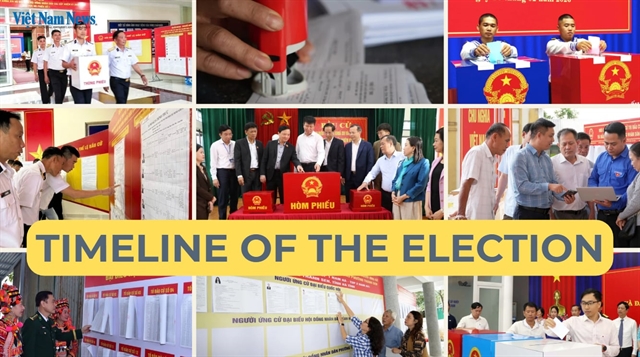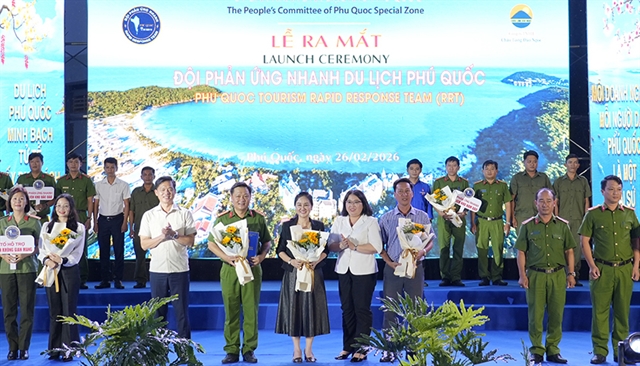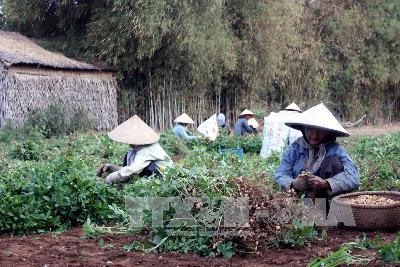 Society
Society

The Project of Adaptation to Climate Change in the Mekong Delta in Trà Vinh Province (AMD Trà Vinh) has helped locals implement 53 production models since 2015, according to its co-ordinating board.
 |
| Farmers harvest peanuts in Trà Vinh Province’s Cầu Ngang District. – VNA/VNS Photo Huy Hoàng |
TRÀ VINH – The Project of Adaptation to Climate Change in the Mekong Delta in Trà Vinh Province (AMD Trà Vinh) has helped locals implement 53 production models since 2015, according to its co-ordinating board.
The models include growing clean vegetables and other crops that use water-efficient irrigation equipment and organic fertilisers, planting vegetables and other crops in net houses, growing rice under a system of rice intensification (SRI), breeding aquatic species and other non-farming models.
Speaking at a meeting in Trà Vinh on Tuesday, Huỳnh Nghĩa Thọ, director of the board, said the models offer high economic efficiency.
Of the 53, 12 are suitable for poor and near-poor households based on their economic efficiency, capacity to adapt to climate change and expandability, he said.
They include growing watermelon using a plastic sheet to cover the ground and with organic fertilisers, a model adopted by which Huỳnh Văn Nghĩa of Cầu Ngang District’s Long Sơn Commune.
The model uses one third less water and fertilisers compared to normal cultivating methods, he said.
He earns nearly VNĐ54 million ($2,300) per hectare from the two-month crop, he said.
Similarly, the Thành Công co-operative team in Duyên Hải District’s Long Khánh Commune earns VNĐ80 million ($3,430) a year by breeding blood cockles in a 6ha area of river.
Nguyễn Thị Nguyệt Nga, one of the members, said: “The model has low risk and is low cost.”
It is very suitable for poor households who do not have lands for farming, she said.
Thọ said the 12 models have achieved unexpected success.
The co-ordinating board had targeted expanding them to about 5,000 farming households, but now nearly 25,000 households have adopted out, he said.
It would continue to expand them to more households and co-operatives next year, he said.
Households will be provided with subsidies equivalent to 100 per cent of seed costs and 50 per cent of fertiliser costs subject to a limit of VNĐ10 million ($429) for poor and near-poor households and VNĐ4 million ($170) for others.
Co-operative teams and co-operatives, 70 per cent of whose members, are poor or near-poor will get the same subsidies subject to a limit of VNĐ6-8 million ($257 - 346).
For households adopting AMD Trà Vinh’s non-farming models, the first batch of raw materials will be fully subsidised as will 50 per cent of their machinery and other equipment costs subject to limits of VNĐ5 million ($214) for poor and near-poor households and VNĐ3 million ($128) for others.
AMD Trà Vinh, funded by the International Fund for Agricultural Development, is being implemented in 2014-20 in 30 communes. – VNS